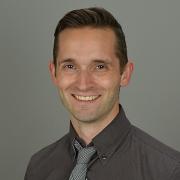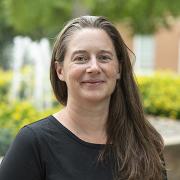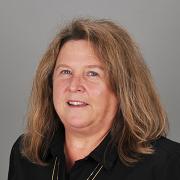
About this Program
Prepare to support others during life’s most profound transitions.
Program Overview
Tuition & Fees
Funding Opportunities
About the Program
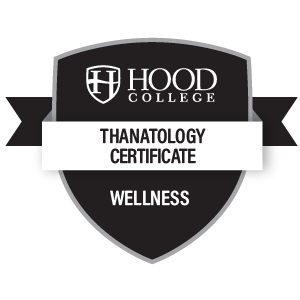
Hood College offers one of the few and most respected Thanatology certificate programs in the United States. This 12-credit graduate certificate—also available as a professional badge—provides specialized training in the study of death, dying, grief, and bereavement across the lifespan..
Designed for both emerging and experienced professionals, the program combines theory, research, and applied skills that prepare graduates to work with the terminally ill, the bereaved, and those seeking death education. Coursework conforms to the Association for Death Education and Counseling (ADEC) benchmarks and can support eligibility for professional certification. Students explore the physical, psychological, interpersonal, and spiritual dimensions of death in a compassionate, flexible, and academically rigorous environment.
Program Highlights
- Fully online format – designed for working professionals
- Evening and weekend course options
- 12 credits – complete in approximately 12 months
- Curriculum aligned with ADEC standards
- Supportive faculty with academic and field expertise
- Welcomes students from diverse academic and professional backgrounds
Why Thanatology, Why Now?
With a growing aging population, increased focus on compassionate end-of-life care, and the societal impact of events like the COVID-19 pandemic, the need for trained thanatology professionals is more urgent than ever.
Graduates of this program are prepared to offer expert guidance, emotional support, and spiritual understanding during life’s most challenging transitions. Hood’s certificate provides not only career advancement—but also an opportunity to make a meaningful difference in the lives of others.
Who Should Apply?
This program is ideal for:
- Professionals in funeral services, hospice care, healthcare, counseling, social work, psychology, ministry, and education
- Graduate students entering new careers in human services or healthcare
- Individuals seeking personal enrichment and deeper understanding of grief and loss
Frequently Asked Questions
What can I do with this certificate?
Graduates work in settings such as hospices, hospitals, grief centers, funeral homes, and faith-based organizations. Roles include grief counselor, hospice care team member, educator, funeral service professional, and spiritual caregiver.
Can I work while completing this program?
Yes! The fully online format and evening/weekend classes are designed to accommodate working professionals.
What sets this program apart?
Hood’s program is among the few ADEC-aligned certificates in the country. It offers an interdisciplinary focus and a flexible, student-centered format grounded in academic rigor and compassionate care.
Will I be supported during and after the program?
Absolutely. Students learn from engaged faculty with real-world expertise and join a network of thanatology professionals. Graduates have access to continuing education and professional development resources.
Is this program accredited?
As a certificate program, it is not accredited in the same way as degree programs, but it is designed to meet ADEC benchmarks, supporting eligibility for the Certified Thanatologist (CT) credential.
How long does it take to complete?
Most students finish the program in about 12 months. The flexible format allows students to adjust the pace as needed.
Do I need a specific academic background?
No specific major is required. Students often come from psychology, health sciences, social work, ministry, or related fields—but diverse perspectives are welcomed.
View Hood Talks Trauma and Society webinar with Dr. Shaine.
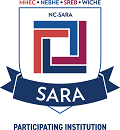
Hood College participates in the State Authorization Reciprocity Agreements.
Degrees Offered
- Certificate
Related Graduate Programs
Are you ready to go further?
Thanatology Certificate Program Information
Prospective students must:
Submit the online application (no essay required).
Request official transcripts to be sent electronically from the institution where the highest degree was conferred.
Transfer Credit Policy
Admitted students may transfer up to 6 graduate credits from an accredited external institution or another Hood College graduate program, provided the credits were earned prior to the first semester of study in the current program.
For full details, please refer to the Graduate Transfer Credit Policy in the College Catalog.
| COUN 521 | Grief, Mourning and Bereavement | 3.0 |
| COUN 523 | Principles of Thanatology | 3.0 |
| COUN 528 | Developmental Perspectives in Thanatology | 3.0 |
| COUN 529 | Historical and Multicultural Perspectives in Thanatology | 3.0 |
The interdisciplinary curriculum includes courses in:
- Foundations of Thanatology
- Grief and Loss Counseling
- Death, Dying, and End-of-Life Care
- Developmental Perspectives on Death Across the Lifespan
This comprehensive approach prepares students to understand and respond to the needs of both the dying and the bereaved—from medical to emotional, cultural, and spiritual.
Guest Lectures & Webinars
Students engage with nationally recognized experts in end-of-life care, grief counseling, and death education. Notably, Hood students have access to events like the Hood Talks: Trauma and Society webinar featuring Dr. Shaine, which explores societal responses to trauma and loss.
Applied Learning & Professional Preparation
Although the certificate is fully online, students frequently apply their learning in real-world settings including hospice care, grief centers, hospitals, schools, and faith-based organizations. Many students are already professionals integrating new skills into their current roles.
Certification Readiness
Coursework is aligned with the Association for Death Education and Counseling (ADEC) benchmarks, preparing students for national certification as Certified Thanatologists (CT). Students are encouraged to pursue certification as a capstone credential for their professional development.
Interdisciplinary Discussions
Class discussions explore death and bereavement from psychological, medical, spiritual, and cultural perspectives—creating rich conversations between students from varied professional backgrounds.
Networking Opportunities
Students build connections with faculty and peers from across the country, forming professional networks that support ongoing growth in thanatology and related fields.
Graduates of the Thanatology Certificate program will:
Demonstrate comprehensive understanding of death, dying, grief, and bereavement across cultural, developmental, psychological, and spiritual dimensions.
Apply specialized knowledge to support individuals and families in end-of-life and bereavement settings, including hospices, hospitals, funeral homes, counseling centers, and spiritual care environments.
Integrate theory and practice in working with the terminally ill, the bereaved, and those seeking death education.
Communicate compassionately and effectively with clients, families, and interdisciplinary care teams.
Meet educational benchmarks set by the Association for Death Education and Counseling (ADEC), preparing graduates to pursue Certified Thanatologist (CT) credentials.
Adapt their skills to diverse professional roles, including bereavement counselor, grief educator, hospice care provider, funeral service professional, or pastoral care provider.
This certificate prepares students for meaningful careers that require both emotional intelligence and professional expertise—ensuring they are equipped to make a lasting difference in the lives of others.
Career Paths
Graduates are well-positioned for impactful roles such as:
Bereavement Counselor
Hospice or Hospital Care Provider
Death Educator
Funeral Service Director or Staff Member
Grief Support Specialist
Pastoral or Spiritual Care Provider
Employment opportunities span a wide range of settings, including hospices, hospitals, grief counseling centers, funeral homes, faith communities, long-term care facilities, nonprofit organizations, and private practice.
12 Months
Average Completion Time
12 Total Credits
Program Contact

Program Director

Director of Graduate Admission

Graduate Student Spotlight | Elijah Matlock ’24
"Whenever I need assistance, I have actually found great use in peer consultation. Seeing the interest and passion my peers are experiencing alongside me, through the knowns and unknowns, is a great tool for gauging my own understanding and esteem about what my practice as a therapist could look like."

Graduate Alumni Focus | Kendra Speicher-Eisenstark, M.S.’25
“The thanatology certificate really sealed it for me, but another piece was knowing how connected the department is to the community. The professors do a great job staying connected to alumni and making sure our internship options are varied and meaningful.”
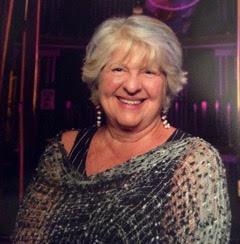
From Thanatology to Counseling and Beyond
Elsie Weinstein earned her thanatology degree from Hood and came back a few years later for her counseling degree.

